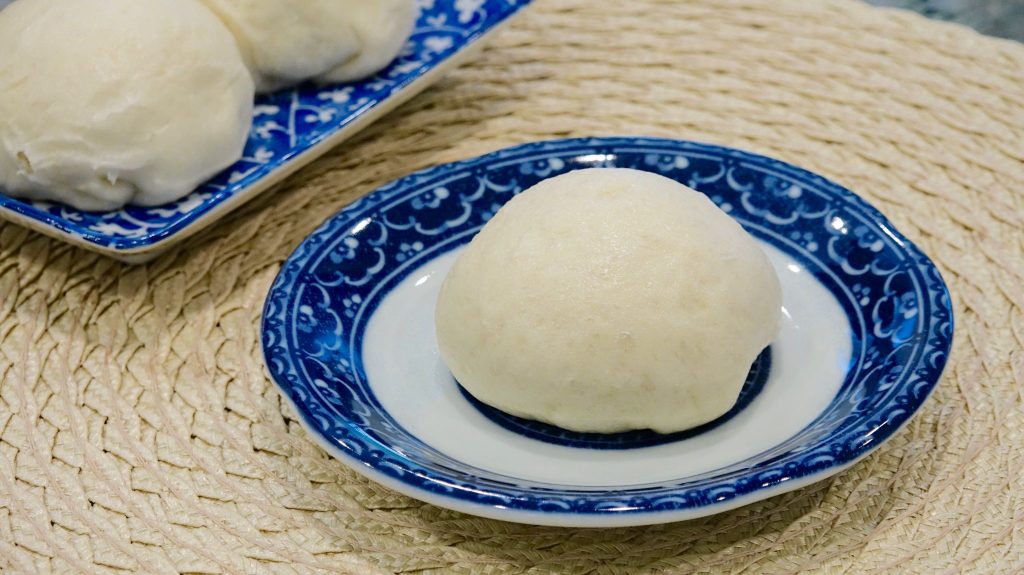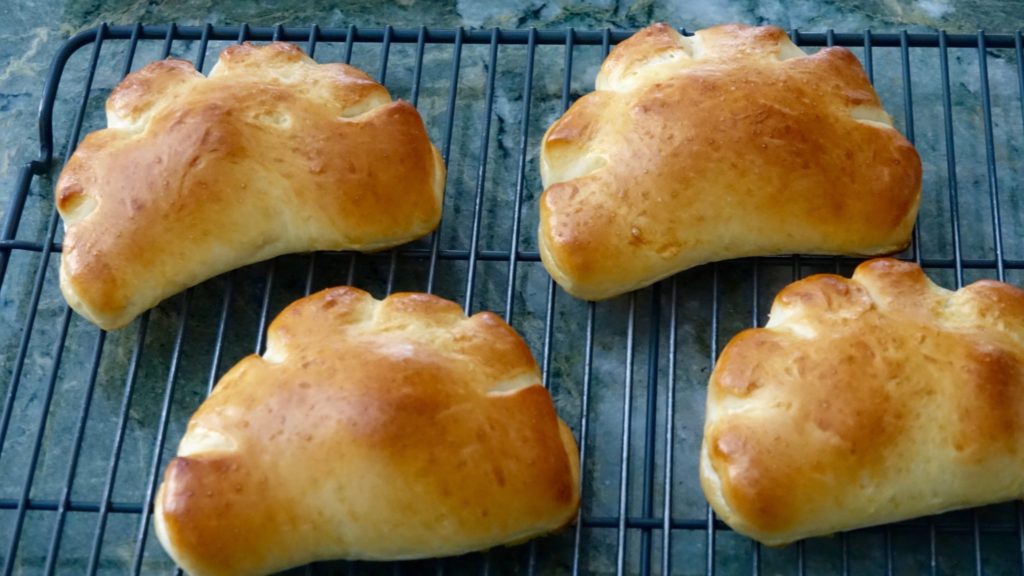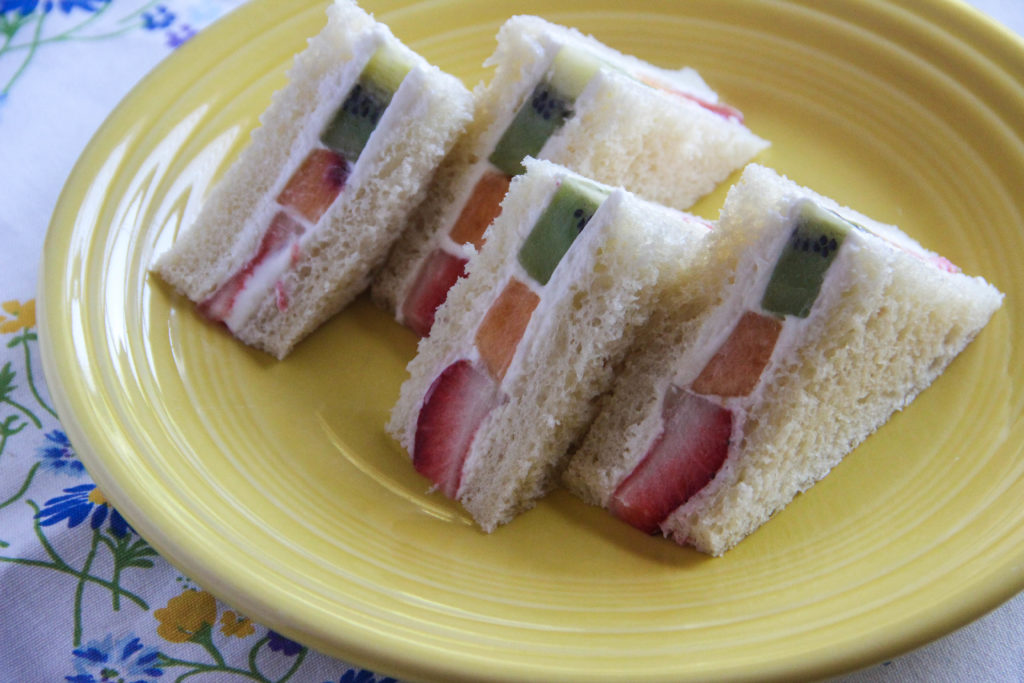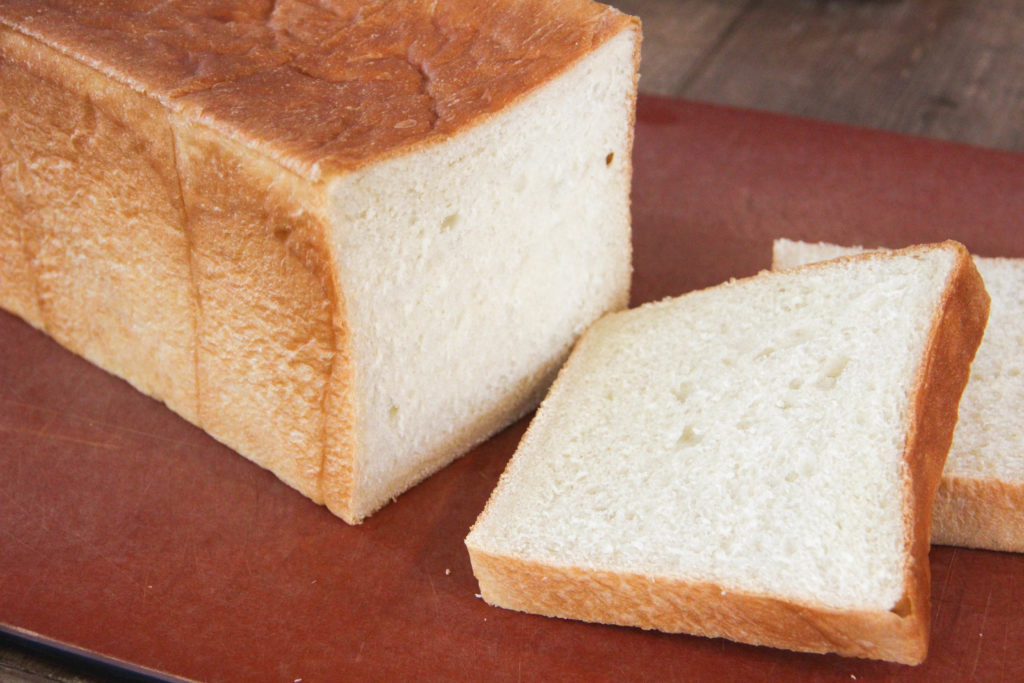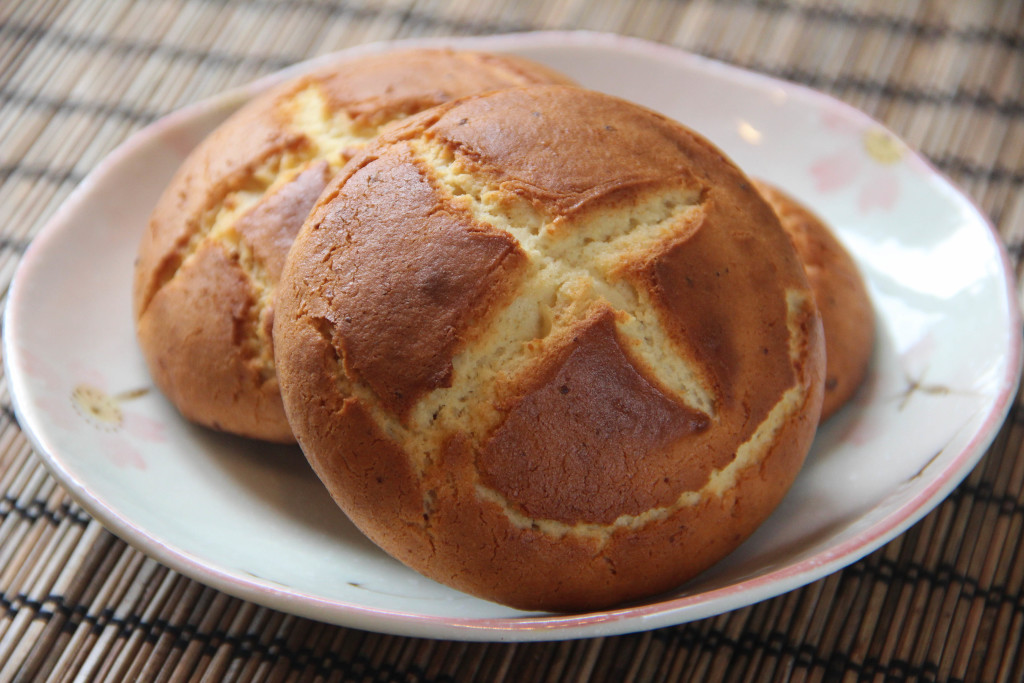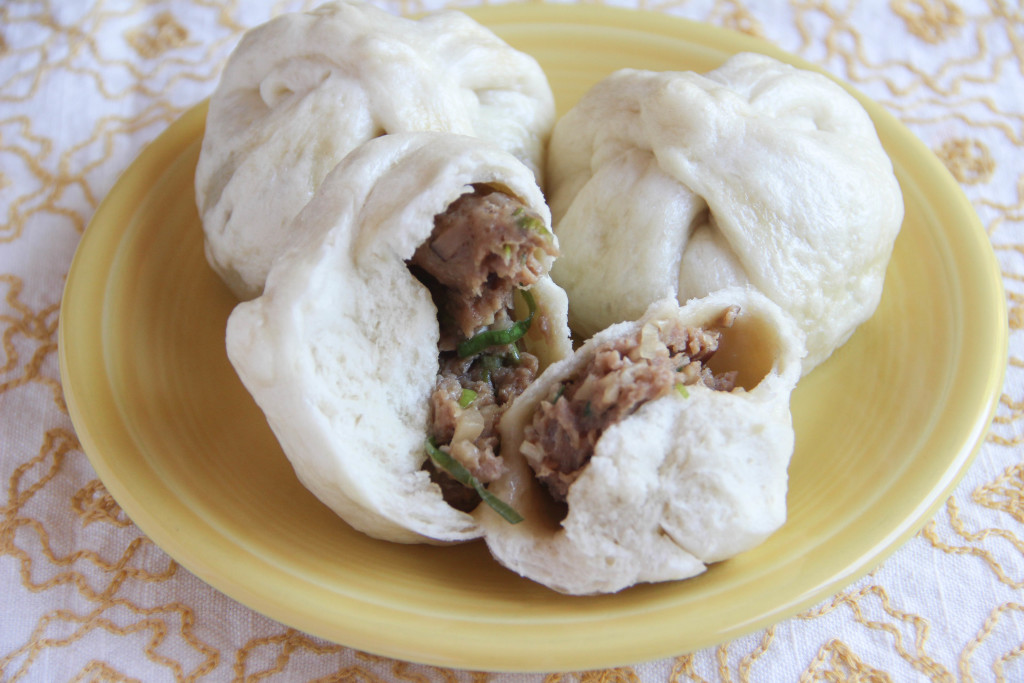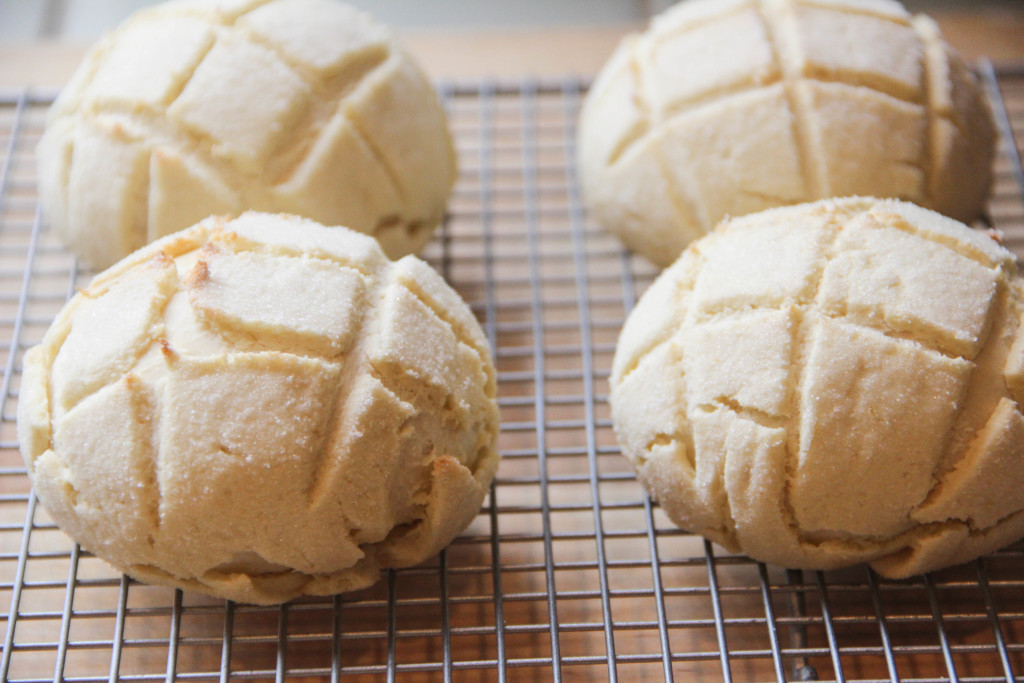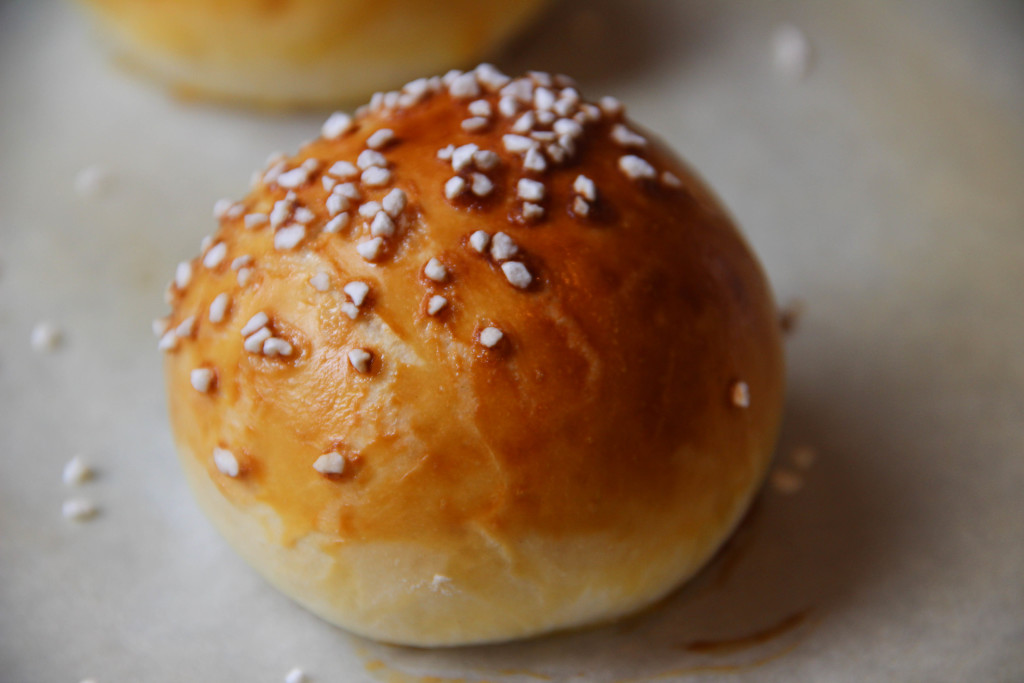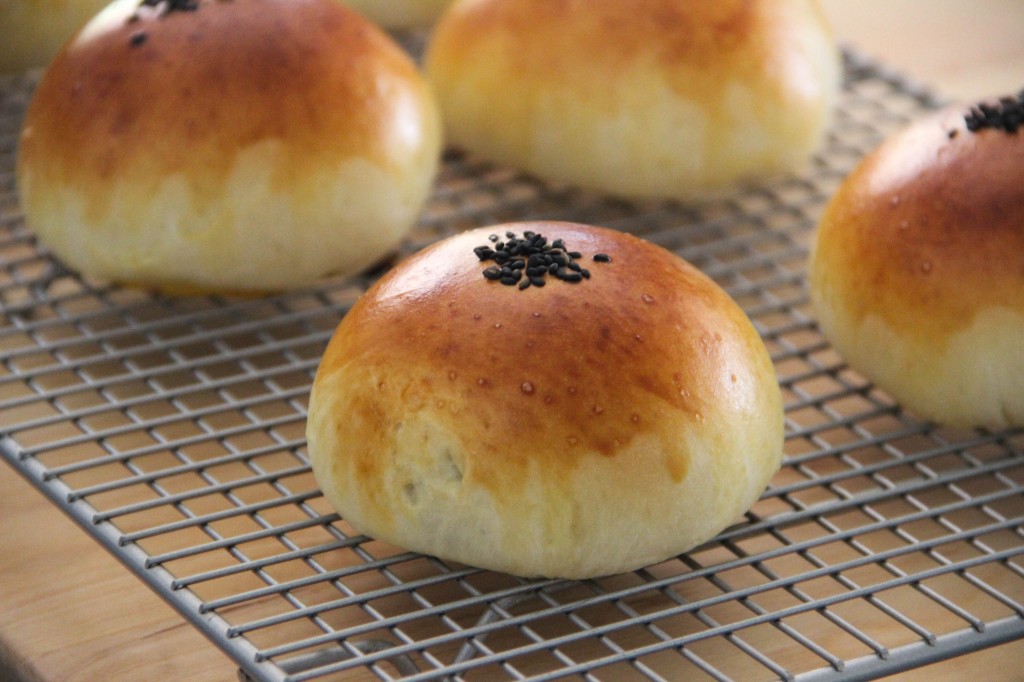Anman are Japanese steamed hot buns with Anko filling. The white bread part is made from both yeast and baking powder, and it is soft and tender. The filling is Koshian, smooth sweet red bean paste with a hint of sesame flavor. The name Anman comes from the Anko and the cake – Manjyu. Even though Manjyu are more traditional Japanese sweet cakes, this is a steamed Manjyu Japanese people love eating for a hot snack and light meal, just like Nikuman, the savory counterpart.
Cream Pan is an another yummy Japanese sweet bread and this one has custard cream filling inside. Just like An Pan, with its sweet red bean paste filling, Cream Pan has been always loved by Japanese people, and it is a staple item for any bakeries or stores that sell bread. Freshly baked, still warm Cream Pan is so soft and sweet, we bet anyone would fall in love with it once they taste it.
Fruit Sandwich is literally a sandwich with an assortment of fruits. Thinly sliced Japanese soft white bread goes very well with the filling of fresh fruit and whipped cream. This is not an everyday Japanese food, but people like to eat it from time to time.
Shokupan (Shoku Pan, Japanese Milk Bread, 食パン) is a Japanese square loaf bread that is often eaten as toast or used for sandwiches. Although rice is the biggest staple food in Japan, Shokupan bread today may be the most popular breakfast item. Shokupan is very soft and tender and delicious, and you will love it if you like Japanese bread. This basic white bread is so versatile it can be used it in many recipes, both savory and sweet.
Amashoku is old-fashioned Japanese sweet bread. It is not yeast bread but more like a simple baked pastry between a cake and a cookie. Amashoku is very easy to make with easy-to-find ingredients. It is a perfect everyday snack.
Nikuman are Japanese steamed hot buns with ground pork filling. The white bread part is made from both yeast and baking powder, and it is soft and tender. The filling is pork with chopped vegetables seasoned with soy sauce and other flavorings such as oyster sauce and ginger. The name Nikuman comes from the meat (Niku) and the cake (Man from Manjyu). Even though Manjyu are Japanese sweet cakes, this is a savory Manjyu Japanese people love eating for a snack and light meal.
Melon Pan (メロンパン) is a Japanese sweet bread with a thin cookie crust on top. It is one of the most popular Kashi Pan (sweet bread) in Japan, loved by the young and the old.
Melon Pan was created about 50 years ago in Kobe by a bread baker. Originally Melon Pan was football-shaped rather than round. Because the bread was shaped similarly to the melons commonly eaten at that time, it was named Melon Pan. Today, Melon Pan is more typically a round shape with the signature look of grid line indentations. The flavor usually has nothing to do with the name, but more recently some bread makers try to add a melon flavoring or even fruit itself to the dough. You can add melon extract to the cookie dough if you can find it (never found in the US). We added lemon zest and vanilla extract here, and that gives a nice sweet smell.
Typical Japanese Bread is a soft white bread used to make many kinds of Kashi Pan (sweet bread) such as An Pan and Melon Pan. Japanese people love the softness in bread so much that it’s almost fanatical. There are more rustic crusty breads around and they like those kinds too, however, they always go back to sweet soft bread that people are familiar with. Japanese Basic Bread has a hint of sweetness but not overly, so you can make it into either sweet or savory bread. Once you master this versatile bread, you will be able to enjoy all sorts of arrangements of Japanese bread.
An Pan is a Japanese sweet bread with Anko (sweet red bean paste) inside. It is an old-fashioned kind of bread, and one of the most popular snack breads of all time.
An Pan was created in the late 19th century, and it became tremendously popular right away. Although people in Japan were not familiar with bread back then, they got to like An Pan which is similar to traditional Japanese sweets because of the use of Anko.
